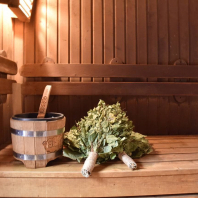Интересно, как.
 chuka_lis — 01.08.2021
В Иллинойсе, Мичигане, НьюЙорке, Пенсильвании (всего 32
округа) проводили заборы крови (481 образец) от
белохвостых оленей (диких) в течении полутора лет, и проверили, не
было ли у оленей экспозиции к коронавирусу САРС2.
chuka_lis — 01.08.2021
В Иллинойсе, Мичигане, НьюЙорке, Пенсильвании (всего 32
округа) проводили заборы крови (481 образец) от
белохвостых оленей (диких) в течении полутора лет, и проверили, не
было ли у оленей экспозиции к коронавирусу САРС2.В среднем, антитела обнаружены у 33% из выборки. Менее всего в Иллинойсе- 7%, в Пенсильвани -34%, в Нью Йорке -18%
А в Мичигане аж 60% оленей сталкивались с этим коронавирусом.
Исследователи не заметили, чтобы олени, за которыми наблюдали- выраженно болели.
И вот вопрос- а каким образом дикие олени подхвтили этот вирус от людей?
Воздушно -капельным путем?
На природе, в лесу или на лугу, где гуляют туристы?
Забравшись в огород, где владелец с ковидом чихнул на розу, которую потом схрумкал воришка?
Похоже, что внутри популяции оленей - вирус хорошо передается.
А вот интересно- если вот так выборочно взять кровь у примерно 500 непривитых человек из этих же штатов- какой % серопозитивности обнаружится?
The U.S. Department of Agriculture’s Animal and Plant Health Inspection Service (APHIS) recently completed a study that analyzed serum samples from free-ranging white-tailed deer for antibodies to SARS-CoV-2 (the virus that causes COVID-19). Results of the study indicate that certain white-tailed deer populations in Illinois, Michigan, New York, and Pennsylvania were exposed to SARS-CoV-2.
Samples were obtained opportunistically as part of wildlife damage management activities conducted by APHIS Wildlife Services across 32 counties in the 4 states. These samples were tested at APHIS’ National Wildlife Research Center and National Veterinary Services Laboratories. Antibodies to SARS-CoV-2 were detected in 33% of the 481 samples collected from January 2020 through 2021. None of the deer populations surveyed showed signs of clinical illness associated with SARS-CoV-2.
The findings, according to experts, suggests that wild animals in the US could serve as a reservoir for the virus even if it becomes under control in the human population
'There is no evidence that animals, including deer, are playing a significant role in the spread of SARS-CoV-2 to people. Based on the available information, the risk of animals spreading COVID-19 to people is low,' APHIS shared in a statement.
|
|
</> |

 Как обшить баню внутри вагонкой своими руками — пошаговая инструкция и советы экспертов Rodno
Как обшить баню внутри вагонкой своими руками — пошаговая инструкция и советы экспертов Rodno  Бренд герцогини Сассекской запустил новый продукт на своем сайте
Бренд герцогини Сассекской запустил новый продукт на своем сайте  Вот и четверть XXI века прошло.
Вот и четверть XXI века прошло.  С любовью, в день рождения
С любовью, в день рождения  С наступающим вас! Берегите себя!
С наступающим вас! Берегите себя!  По поводу ЖЖ-шных нововведений
По поводу ЖЖ-шных нововведений  Смородина красная: секреты больших урожаев
Смородина красная: секреты больших урожаев  За голосовые оскорбления в интернете будут штрафовать
За голосовые оскорбления в интернете будут штрафовать  Эволюция когнитивной войны
Эволюция когнитивной войны 



